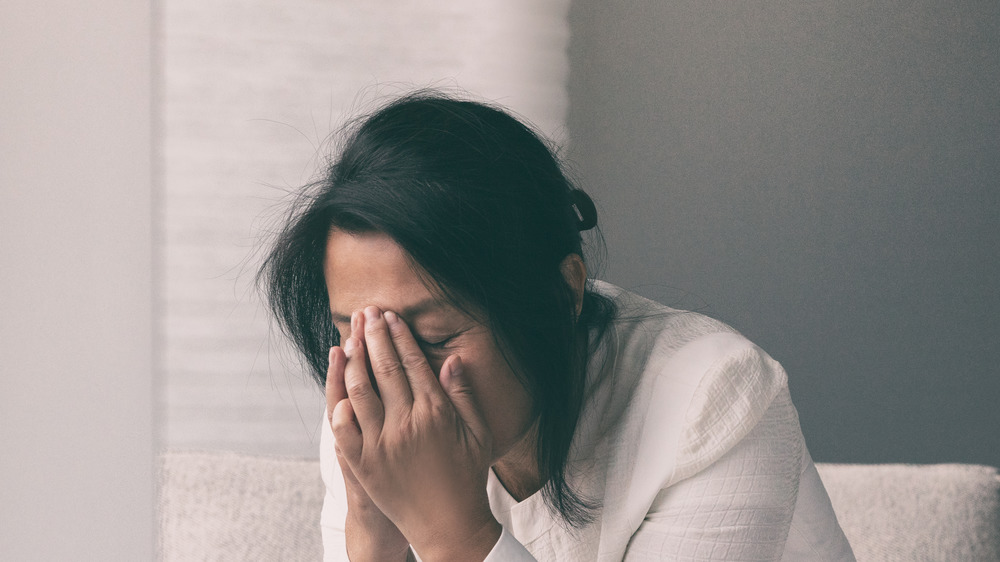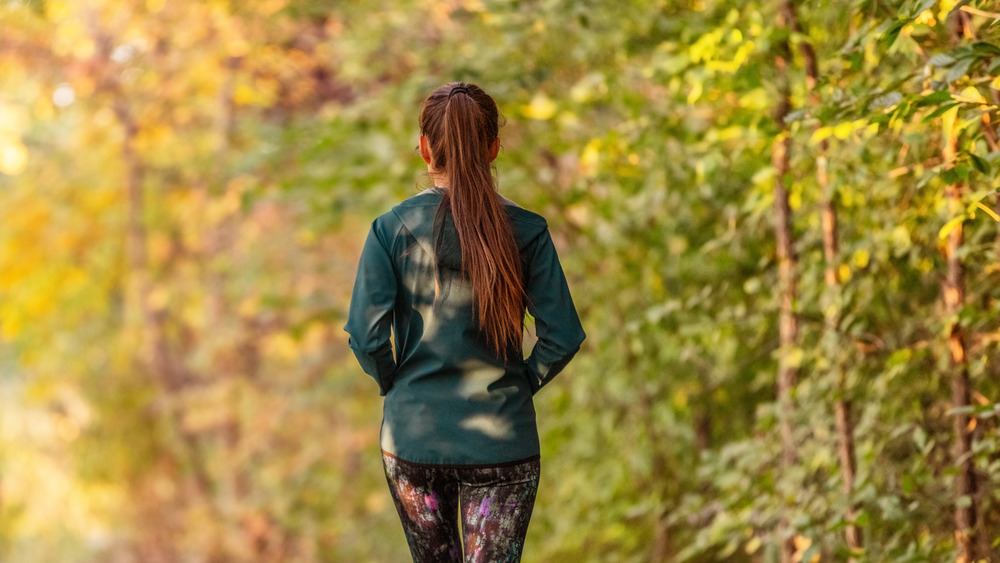Living Through A Pandemic Might Have This Surprising Effect On Your Health
No more than a handful of people living today will remember what it was like to live through the Spanish Flu pandemic which struck between 1918-1919, and which the CDC still describes as the most severe pandemic in recent history. And while medical science has come a long way since that time, we can only imagine that when everything is done and dusted, the COVID-19 pandemic which we're going through now is probably going to come close to what our grandparents and great-grandparents likely lived though during that time. As of November 13, The New York Times reported that the country had 10.6 million active coronavirus cases, and nearly 243,000 dead, with the number set to rise. In the last week alone, there has been an average of 134,078 new cases a day.
COVID-19 stress is making our bodies age more quickly
If you feel like these COVID-19 stats, along with the events that followed Election Day on November 3rd elections have led you to lose sleep and experience insomnia, irritability, exhaustion, and anxiety, you're likely feeling the impact brought on by chronic stress, which Massachusetts General Hospital says often comes when you feel you don't have control over certain situations, and when there is uncertainty.
Luana Marques, Associate Professor at Harvard Medical School, says "When we experience a stressor, we engage our fight or flight mechanism. When our fight or flight is engaged, we release hormones that make physiological changes in our body. This is helpful when we are in immediate danger and need to fight for our lives or escape for survival." But the same cannot be said if we're dealing with acute stressors on a regular basis — the way we have been as a result of COVID-19. "Chronic stress can affect how the immune system functions," says Dr. Marques. "It is linked to increases in metabolic disease such as diabetes, heart disease and stroke, and even certain types of cancer."
Cells in our DNA age as a result of stress
While there still isn't much by way of research on the effects of COVID-19 related stress on our bodies, there is plenty out there that tells us about the impact of stress on a cellular level, and one of these has to do with a DNA protein known as the telomere. Under normal circumstances, telomeres — which are found at the ends of our chromosomes — become shorter when they replicate because they are unable to copy themselves completely. This shortening occurs naturally when we age (via PNAS).
But the telomeres also respond to chronic stress, and studies now suggest that there might be a link between the length of a person's telomeres and the amount of chronic stress that her or she is subjected to, and that psychological stress could have an impact on cell aging. Simply put- our bodies could be growing old more quickly than normal, and COVID-19 may actually render our bodies older than our actual ages, as a result.
Small wonder, then, that The Star's Joanna Chiu tweeted that "People in their twenties told me they were shocked to discover streaks of grey in their hair, but once they thought more about it, they weren't surprised." She adds: "With extended chronic stress, people get certain symptoms like fatigue, difficulty thinking through complex thoughts, greying hair and weight gain."
Self care is critical: Marques
Marques says previous studies have shown that natural disasters like hurricanes and pandemics have had a lasting impact on the human body. "An analysis of many previous studies has emphasized the long-term psychological effects of disease pandemics and quarantine, including post-traumatic stress disorder (PTSD)," she says (via Massachusetts General Hospital). "These studies have reported these effects lasting from months up to years after the initial event. In a study of youth during post-Hurricane Katrina, data indicated that many of the subjects could have benefited from PTSD treatment up to 2.5 years after the initial event. These studies can help us understand the potential impact of the current pandemic we are experiencing."
Marques says the best way to make sure this doesn't happen is to take care of yourself. "We cannot begin to manage our mental health when our tanks are empty. I encourage everyone to 'charge up' when you need to," she says. "This means getting enough healthy food to eat and eating at regular intervals, exercising at least 30 minutes a day and getting seven to eight hours of sleep. All of these behaviors are backed by research to support our cognitive, mental and physical health. This will ultimately help us build resilience during a time when we do not know what to expect."



